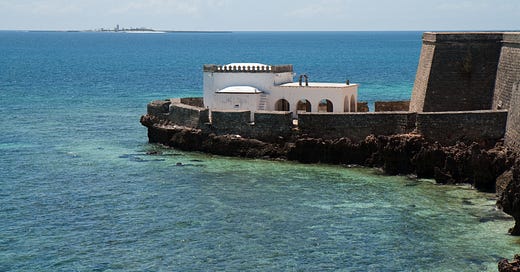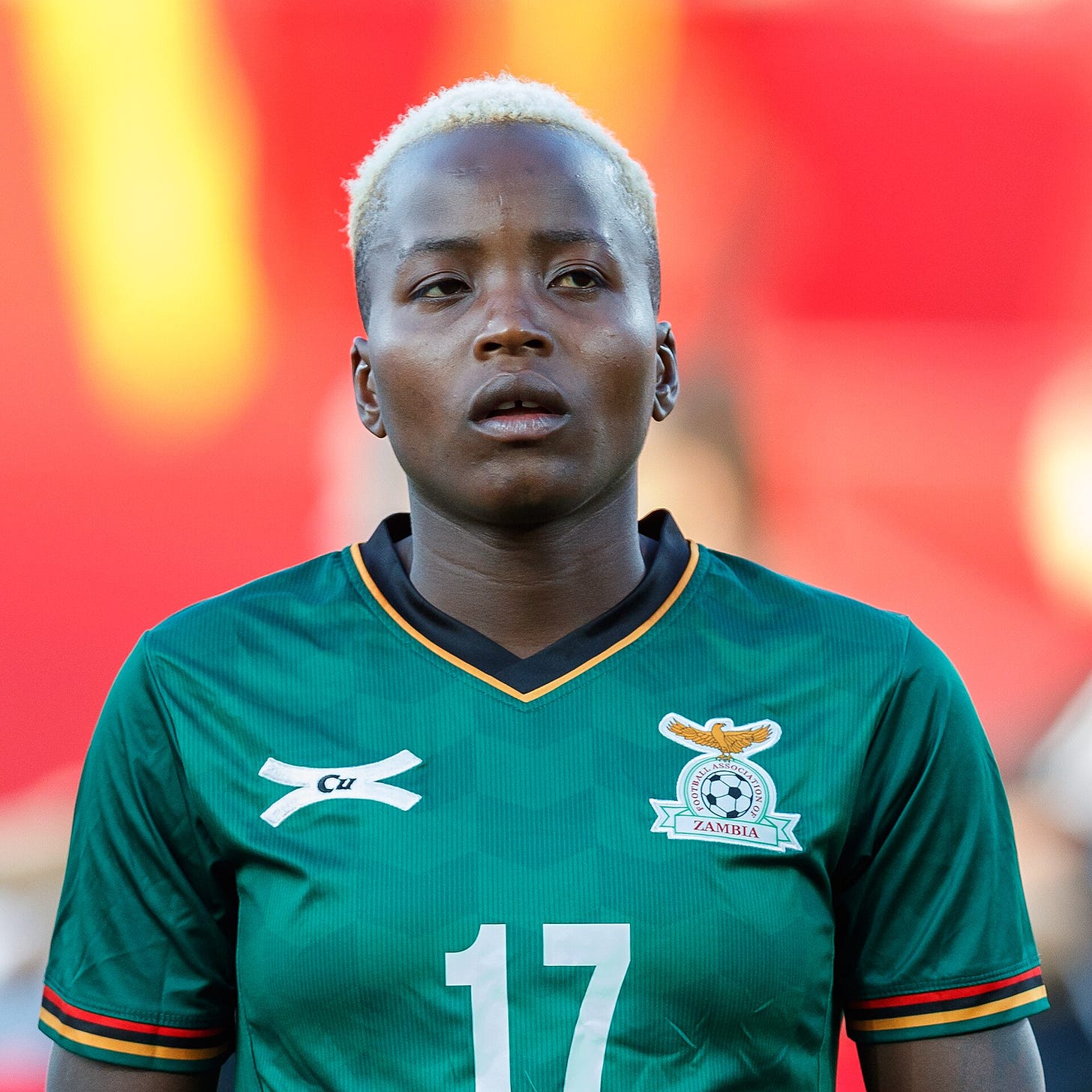Image of the Day
Spotlight Stories
From Track Spikes to Soccer Stardom: Racheal Kundananji's $2.5 Million Journey
Picture a 17-year-old girl showing up to soccer practice wearing track spikes, sprinting around a bumpy patch of dirt that looks more suitable for off-road biking than football/soccer. Spoiler alert: Track spikes and football don't mix well. It's like trying to ice skate on a basketball court – you've got the speed, but good luck with those turns!
This wasn't the setup for a sports comedy – it was Racheal Kundananji's first soccer practice. Her coach, Risto Mupaka, summed it up perfectly: "She would run very fast, but turning was a problem." Those spikes were great for sprinting in straight lines but about as useful as stilettos for quick direction changes on a soccer field.
But here's where the story takes a turn:
Seven years after that spike-wearing debut, Kundananji has transformed from a directionally challenged newbie into one of the most valuable women's soccer players on the planet. Talk about learning to pivot!
In February, Bay F.C., a San Francisco-based team, paid $788,000 to acquire Kundananji – the highest transfer fee ever for a female player. Her contract could eventually pay her $2.5 million.
Kundananji's rise to fame is perfectly timed with the growing interest in women's soccer worldwide. But more importantly, it's creating opportunities and hope for women players in Africa.
Since Kundananji's deal was announced, coaches in Zambia report a surge in girls wanting to play soccer. And their families are cheering them on!
Kundananji's journey hasn't been all smooth sailing. She had to learn to control her temper, and she's still adjusting to her newfound wealth and fame. At a recent foundation opening, she showed up in a glamorous, full-length black coat and oversize sunglasses – a far cry from the days when she shed tears because she couldn't afford soccer shoes.
But it's Kundananji's unrelenting self-belief that has carried her through. From her first professional salary of $70 a month (with a $50 bonus for wins) to her current multi-million dollar contract, she's always played as if she was "targeting something big."
As Zambia heads to the Paris Olympics, Kundananji is ready to make her mark. "Zambia is one of a kind," she declares. "We are going to leave a mark." With her track record, we wouldn't bet against her.
M-PESA: The Mobile Payment Giant Outshining Global Tech Titans
In the world of mobile payments, a Kenyan company is putting international tech giants to shame. M-PESA, a mobile payment system owned by Safaricom, handles a jaw-dropping 59% of Kenya's GDP - that's 20 billion transactions in 2023 alone.
To put that in perspective, even if 80% of PayPal's global transactions took place in the US (an extreme assumption), it would still account for less than 5% of America's GDP.
So, how did this African underdog outmanoeuvre its much larger competitors?
M-PESA's success wasn't overnight. It started as a pilot project funded by the UK's Department for International Development, aiming to create a mobile payment system for the unbanked.
But scaling up required a key insight: simplify the model and focus on money transfers. As the company expanded across Africa, it continuously adjusted to the unique challenges of emerging markets - something Western tech giants often struggle with.
M-PESA's management team, with their deep understanding of these markets, has a crucial advantage over their global counterparts.
And instead of fighting potential competitors head-on, M-PESA embraces them:
With the majority of smartphones in emerging markets being low-cost devices with limited storage, the chances of users downloading a separate payment app are slim. M-PESA's solution? The Super App, which allows other businesses to embed their apps within M-PESA's platform. This solves the distribution problem for businesses and provides customers with a data-free experience - a win-win situation that leaves competitors with little incentive to challenge M-PESA's dominance.
One of M-PESA's most recent triumphs is Fuliza, an overdraft service launched in 2019. Despite the regulatory concerns and potential risks, M-PESA noticed that millions of transactions were failing due to insufficient funds, but customers would often repeat these transactions within two days. This insight led to the creation of Fuliza, which disbursed over $6.4 billion in its last financial year, with an average ticket size of just $2.
As M-PESA continues to innovate and expand across Africa, its ability to make unconventional adjustments without stepping too far out of its comfort zone will undoubtedly lead to more success stories. The mobile payment giant may be small compared to its international competitors, but its impact on the lives of millions in emerging markets is nothing short of monumental.
Mozambique's Fishy Business: The $3.1 Billion "Tuna Bond" Scandal

In a landmark ruling, Mozambique has emerged victorious in its $3.1 billion lawsuit against Emirati-Lebanese shipbuilder Privinvest at London's High Court. This case, stemming from the infamous "tuna bond" scandal, marks a significant win for the African nation.
The lawsuit alleged that Privinvest and its late owner, Iskandar Safa, paid bribes to Mozambican officials and Credit Suisse bankers. Judge Robin Knowles ruled "substantially in favor" of Mozambique, awarding the country $825 million in damages from Safa and Privinvest.
The scandal dates back to 2013-2014 when Mozambique struck deals with Privinvest for loans and bonds, ostensibly for fishing boats and maritime security. However, hundreds of millions disappeared, leading to a financial crisis when the hidden debt came to light in 2016.
Mozambique's legal team argued that over $136 million in bribes were paid to secure favorable terms on three projects, including one aimed at exploiting the country's tuna-rich coastal waters. Privinvest and Safa denied any wrongdoing, claiming the payments were lawful.
In an interesting twist, Privinvest's defense team attempted to portray the case as a political maneuver to deflect blame from Mozambican President Filipe Nyusi and other senior officials. However, this argument didn't sway the court.
The ruling also grants Mozambique an indemnity for about $1.5 billion in other payments, including $1.4 billion owed to bondholders until 2031. This decision could have far-reaching implications for how nations handle cases of alleged corruption involving international companies.
Food for Thought
“An orphaned calf licks its own back."
— Kenyan Proverb






